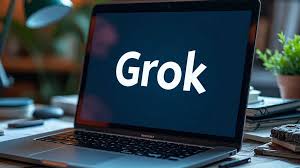 We all just want more effective help online. We want information, we need suggestions, even helping us with tasks by doing the work for us. Oh, and we would even like the advice to be timely and accurate! Over the past few years, as people were exploring ChatGPT as an alternative to traditional search, other alternatives emerged. Actually multiple AI assistant alternatives emerged, forcing downward pressure on Google’s ad-based model, which makes up half of its revenue. Businesses expecting to be found through Google search are seeing a decline in traffic. And that is likely related to lawsuits pertaining to its AI overviews, which eliminate the need to go further into links.
We all just want more effective help online. We want information, we need suggestions, even helping us with tasks by doing the work for us. Oh, and we would even like the advice to be timely and accurate! Over the past few years, as people were exploring ChatGPT as an alternative to traditional search, other alternatives emerged. Actually multiple AI assistant alternatives emerged, forcing downward pressure on Google’s ad-based model, which makes up half of its revenue. Businesses expecting to be found through Google search are seeing a decline in traffic. And that is likely related to lawsuits pertaining to its AI overviews, which eliminate the need to go further into links.
Do we want sarcasm built into the answers? If you haven’t tried the audio version of Grok, the x.AI offering led by Elon Musk, you may be startled at the wise-cracking AI answers. The latest version of Grok (4.1) rolled out in the past few weeks – there is some charm in that style, at least for a little while. For those of us seeking just the facts, accuracy matters – and the comparisons online are not all that helpful. You have to love the ‘high inaccuracy’ rate – and why would we use this? Testing its ability to know the online music offerings of a broadcast station, it kept getting the answer wrong, apologizing each time. Sweet. However, it has apparently done an impressive job of inhaling engineering textbooks, according to some observers. Yay.
The more you read about AI assistants, the more you end up not knowing. It’s an embarrassment of riches – likely to improve with time – that is Internet time. Meaning they will all be better at their tasks in a few months or less. We have stepped into a new world of AI agents that will accomplish a set of tasks for us that used to be a laborious slog. Notes from meetings, TO DO lists, booking trips are perfect for AI agents. Soon, given a profile about us, these agents will tailor their responses to what they know about us, that is what we are willing to share. Consider TV and movie recommendations that we are pleased to get based on our viewing history. Improved healthcare engagement, beyond medication reminders and exercise suggestions – also easy, given our personalized data. Will we have to use a specific app, log into a particular healthcare website, sign on to get specific shopping recommendations?
We need better advice for older adults about spam, scams or identity theft. Will the growth of personalized responses be an invitation to those inventive scam engineers? And who knew there were fake job applicants for software engineering jobs? In the middle of a Medicare enrollment period, one wonders about phone solicitors seeking to verify age, marital status or other data points that populate the scam databases. Consider the volume of scams against older adults, including impersonating the Federal Trade Commission with a warning about scams (!) with the result – a loss of life savings. Grok's chatty answer to how to protect against scams and fraud is pretty good. Will check again in a few months.

 We all just want more effective help online. We want information, we need suggestions, even helping us with tasks by doing the work for us. Oh, and we would even like the advice to be timely and accurate! Over the past few years, as people were exploring
We all just want more effective help online. We want information, we need suggestions, even helping us with tasks by doing the work for us. Oh, and we would even like the advice to be timely and accurate! Over the past few years, as people were exploring